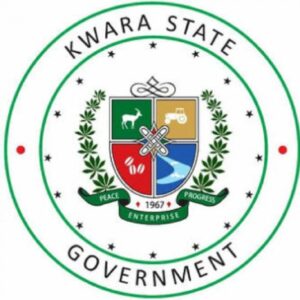
99% cervical cancer linked to common virus transmitted during sex — WHO
By Matthew Denis
The World Health Organization (WHO) Regional Director for Africa, Dr. Matshidiso Rebecca Moeti has disclosed that almost all 99 percent of cervical cancer is linked to the common virus, human papilloma virus (HPV), that is transmitted during sex.
The Regional Director made the disclosure in a statement made available to Nigerian NewsDirect in Abuja, while stating that the month of January, 2024 is slated for cervical cancer awareness month.
She said, “January is cervical cancer awareness month and the WHO African Region joins other WHO regions in marking this month to promote the three key messages of this year’s campaign: be informed; get screened; and get vaccinated.
“It is critical that young women in particular know about the link between cervical cancer and the human papilloma virus (HPV).
“Almost all (99 percent) of cervical cancer is linked to this common virus that is transmitted during sex. Second, getting screened knowing about this link with a common viral infection means that it is now easier to screen women for the disease.
“And third, get vaccinated – this disease can be prevented by vaccinating young women, thus preventing HPV infection. Cervical cancer awareness requires us to empower women with knowledge, at school, by clinic staff, and from women who are living with the disease. Understanding the link between the disease and HPV will encourage screening, and HPV vaccination among young women.”
According to her in 2020, in the WHO African Region, 100,000 women developed cervical cancer “and approximately 70,000 of these women died – this is 21 percent of the cervical cancer mortality globally. Cervical cancer disproportionately affects some of our most vulnerable communities.”
Dr. Moeti revealed that the high rates of cervical cancer in Africa region show that there are major gaps in knowledge, awareness of the disease, and access to screening.
“We also need urgently to ensure that the HPV vaccine reaches all our young women between the ages of 9 to 14 years. This requires us to focus on our immediate needs in order to address these gaps.
“How are we, in the WHO African Region, tackling this unacceptable burden of disease? First, as a region, we have a specific public health framework, launched in 2021, aimed at accelerating the elimination of cervical cancer as a public health problem in Africa. This framework contains concrete actions that can be taken to reach the following targets: 90 percent of girls are fully vaccinated with HPV vaccine by 15 years of age; 70 percent of women are screened using a high-performance test by 35 years of age and again by 45 years of age; and 90 percent of women with pre-cancer are treated, and 90 percent of women with more advanced cancer are managed.
“We also need to be aware that women living with HIV have increased susceptibility to HPV infection and so an increased risk of cervical cancer. While this is a particular challenge in the African Region, with our high levels of HIV infection, this is also an opportunity.
“We can use our HIV screening and treatment services as another opportunity to raise awareness of cervical cancer, and offer screening and vaccination to women attending HIV services. We are making good progress in this area, by integrating cervical cancer screening and treatment services into HIV programmes noting that in Zambia they started this initiative in 2018. Around 235,000 women living with HIV were screened from November 2020 to October 2021. Between 2022 and 2023, there was an increase of 30 percent in cervical cancer screening rates among women living with HIV,” she said.
The Director emphasised that HIV services are not the only programmes into which cervical cancer screening and treatment services can be integrated.
She stressed that HPV vaccination – a game-changer in the drive to eliminate cervical cancer, not only in our region, but also globally they are making major progress in this area.
“Twenty-seven countries in our region have started HPV vaccination, making it part of routine vaccination in young women. Another move towards accelerating the introduction of the life-saving HPV vaccine, is towards using only one dose – shown to be highly effective, and which means that young women are less likely to drop out of the vaccine schedule.
“Already, 4 countries have adopted the single dose vaccine. The region overall, is scaling up and increasing HPV vaccine coverage in the target populations, which is highly encouraging.
“I would urge all countries in the region to actively engage in awareness campaigns, promote screening and encourage HPV vaccination among their young women,” she said.
The Director summoned, “As we start 2024, let’s keep cervical cancer high on our agenda. My message is clear: first, cervical cancer can be prevented and it can be cured. Everyone needs to be aware of the disease, what causes it and how it can be prevented. Second, there is no one intervention that will achieve this – we need to harness a range of techniques and approaches.
“Third, the WHO Regional Office for Africa will continue to work with our countries and a range of partners and stakeholders to accelerate action against cervical cancer and ensure that no woman in Africa needs to be diagnosed with this devastating disease.”



